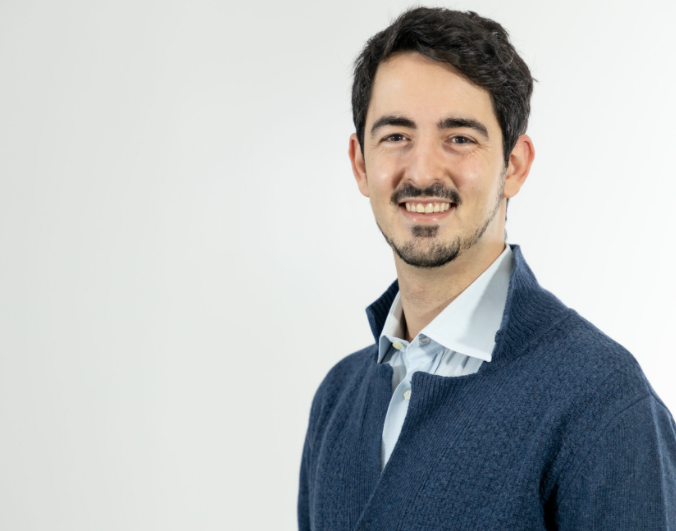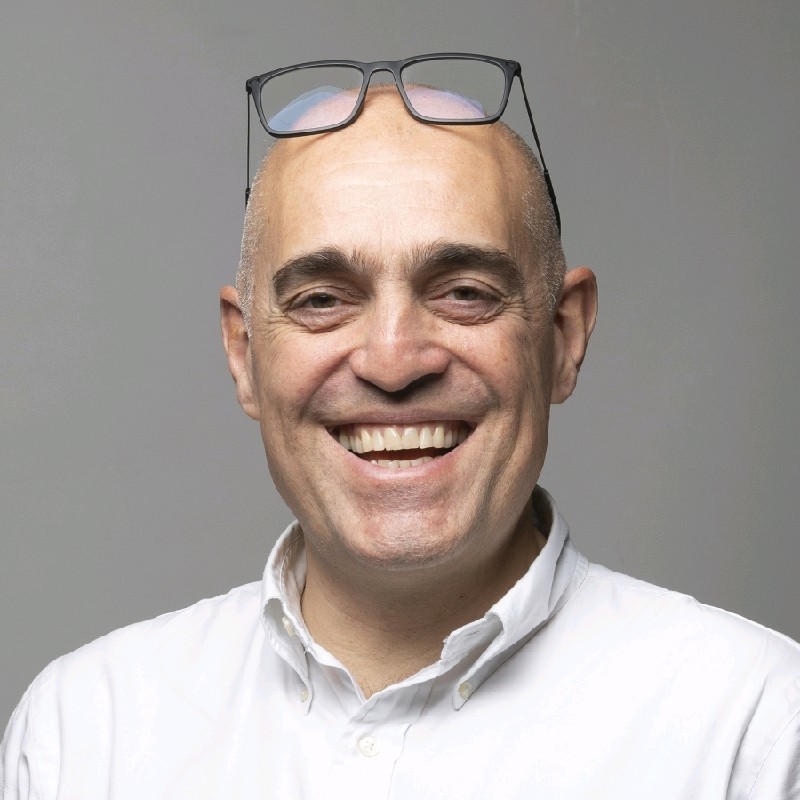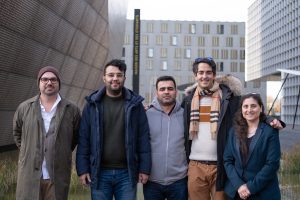Have you ever wondered how companies could better decide where to open a new shop, office, or service? Behind what may seem like a simple choice lies a world of data, from how people move around cities to how accessible a site is by bike, car, or bus.
At the University of Luxembourg, the Mobility Data Factory (MDF) project, led by Dr. Federico Bigi, translates this data into insights for urban planners and companies. Using AI, digital twin technologies, and advanced mobility simulations, the research team helps them make smarter, more sustainable location decisions — shaping cities that work better for people and the planet.
From a rooftop in Italy to the Mobility Data Factory in Luxembourg
How does a project like the Mobility Data Factory come to life? For Dr. Federico Bigi, it began in August 2024 at a restaurant in a small sea-town close to Rome.
The restaurant is in one of the most strategic spots in the town, yet it has changed hands several times without success. When a new owner took over, he decided to try a different approach. For two months, he would climb to the building’s roof, counting people passing by and categorising them by sociodemographic group, family size, etc. From these observations, he meticulously gathered his data and decided what kind of business would succeed in that location.
Hearing this process, Dr. Bigi realised something important: with the right tools, the same insights could be generated in 30 minutes, not 2 months. “This made me understand that everything I’d built throughout my PhD could finally help people make better, faster and evidence-based decisions”, he explains.
The idea of creating the Mobility Data Factory was born with a clear mission: using data-driven insight, the team wants to provide services and solutions for location and urban mobility problems. “We aim to co-develop tools that improve how business and companies evaluate mobility-related decisions by integrating data-driven mobility trends, digital-twin and AI solutions into the decision-making process”, adds Dr. Bigi. To do so, the researchers transform location data and human movement patterns into intuitive dashboards and insights, enabling developers and retailers to invest with confidence.
‟ We want to allow everyone to harness the power of AI and digital twin, moving from outdated modelling and decision process to real-data powered insights.”

Postdoctoral researcher
Solving real-world mobility challenges
Since the start of the FNR JUMP project 7 months ago, Dr. Federico Bigi and his team have transformed complex mobility data into practical solutions for real-world problems. From office relocations to public transport planning and route optimisation, the Mobility Data Factory provides companies and cities with insights that were once unobtainable without huge investments — all through intuitive dashboards, AI predictions, and digital twin simulations.
What sets MDF apart from traditional research in mobility is its approach: the team starts with a client’s real problem and builds upward. This applied method transforms academic innovation into immediate value, a philosophy shaped by Prof. Dr. Francesco Viti and Dr. German Castignani.
The results are striking. Tasks that once took a month can now be completed in under two minutes — all while improving the quality of the solution. Companies gain a real competitive advantage in a fast-moving, data-driven market.
Behind this speed and precision is a combination of AI and digital twin technologies. In a world overflowing with data, AI and urban mobility simulations predict traffic flows on highways, the number of pedestrians in high-end shopping streets, and even events that ripple across entire transport networks. Paired with digital twins, these predictions become “what-if” simulations: “What if a new tram line connects Belval to the city? Will it truly ease congestion?” Or, “If we add 20% more charging stations in Bonnevoie, is it really necessary there?”
By testing these scenarios virtually before acting, MDF allows cities and companies to make smarter decisions, reduce costs, lower emissions, and navigate uncertainty.
| Did you know? MDF was built on the belief that innovation happens when science meets strategy. At the University of Luxembourg, MDF was supported by Partnership, Knowledge and Technology Transfer Office (PaKTTO) which helps research thrive beyond academia. With PaKTTO’s expertise in IP, business development, and market analysis, projects like this one gain the tools to succeed, combining world-class research with smart planning to create real impact. |
MDF’s impact on companies
In just a few months, the Mobility Data Factory has already shown the power of using data before making location decisions. For example, in the office relocation project with Inowai, a process that would normally take an entire month — during which consultants manually gather and process data to prepare presentations for potential buyers or renters — shrink to just two minutes thanks to MDF’s solution, without compromising quality.
But their work doesn’t stop there. The team is now building predictive models for other companies, moving beyond outdated, static approaches that once dominated the industry. Traditional models, while solid, often became “set in stone,”, unable to keep pace with Luxembourg’s fast-evolving urban and mobility landscape.
By contrast, MDF’s solutions are dynamic and entirely data driven. They carry no assumptions, no preconceptions, only insights drawn from the real world. This allows companies to act swiftly and with confidence, gaining a true competitive edge in a rapidly changing market. For instance, the Luxembourgish real estate agency Inowai is currently collaborating with MDF to develop an innovative tool to support their clients in making strategic office location decisions.
‟ The tool’s design and features will significantly enhance the range and quality of services that INOWAI can offer.”
When it comes to international reach, MDF has already begun looking beyond Luxembourg. The company is strengthening its partnership with MOVESION, one of Italy’s leading urban mobility firms, with plans to collaborate on several upcoming projects.
‟ The partnership with MDF strengthens MOVESION’s commitment to sustainable mobility, as their simulation tools allow us to quantify impacts on modal shift, CO₂ emissions, and accessibility, thereby enriching our strategies with measurable, future-oriented evidence. The combination of data and models is the key to fully exploiting the latest technological advancements in transportation. MDF roots its knowledge assets in one of the best research groups in this field.”

Right now, the project is already running three pilot projects with local partners, demonstrating how data-driven mobility solutions can support decision-making across Luxembourg’s fast-evolving urban and business landscape and the market need for these solutions. MDF is now looking for new companies and institutions eager to tackle fresh challenges and explore what the tools can do for them. By working closely with local stakeholders, the Mobility Data Factory is helping people and businesses make smarter, faster, and more sustainable decisions, from choosing the right locations to improving transport and mobility planning across the country.
Learn more
The Mobility Data factory project is supported by the Fonds National de Recherche (FNR) under the JUMP project and has also received valuable support from PaKTTO (Partnership, Knowledge & Technology Transfer Office at the University of Luxembourg). The team extends its heartfelt thanks to Murat Samanci and Severine Iffland for their contribution.

